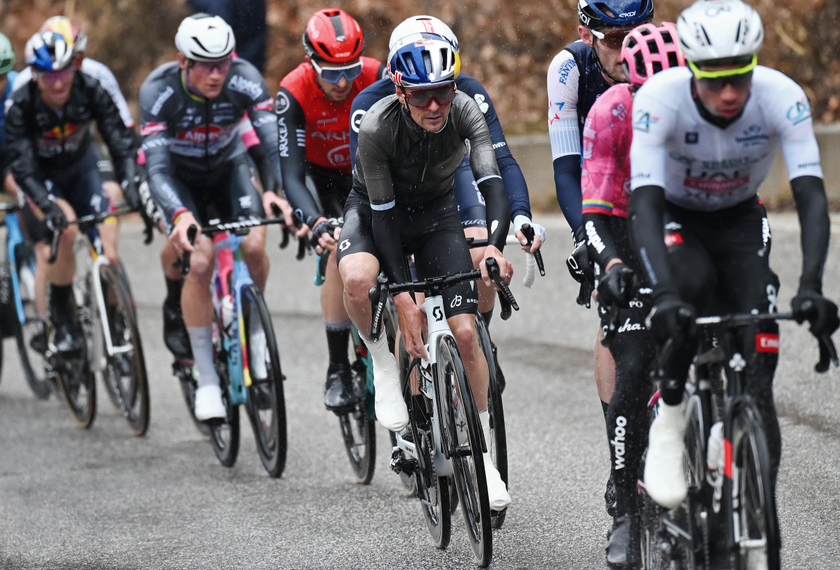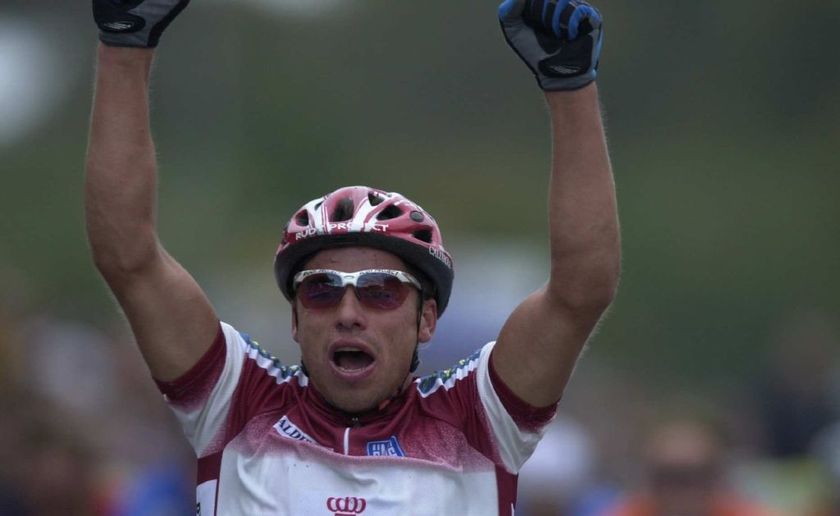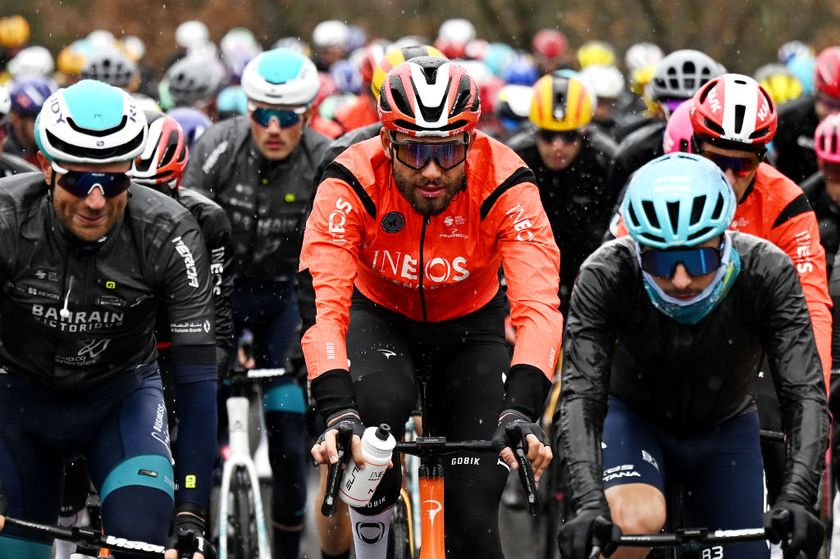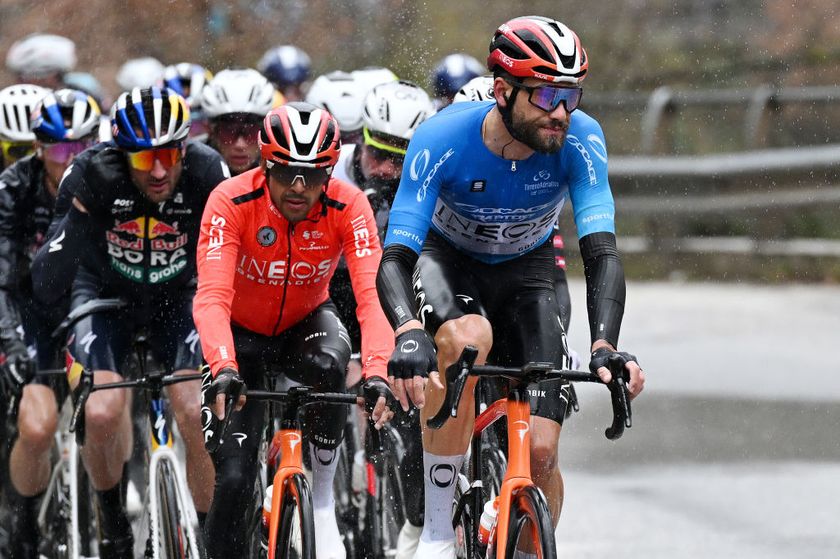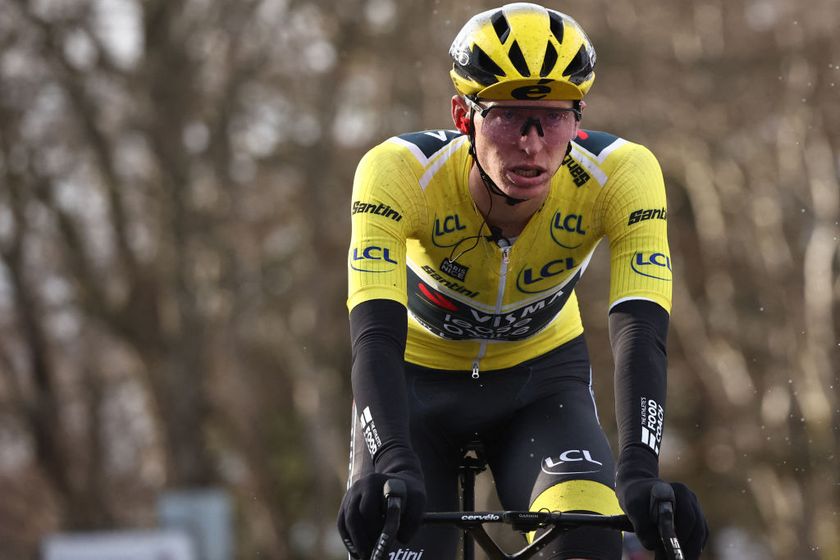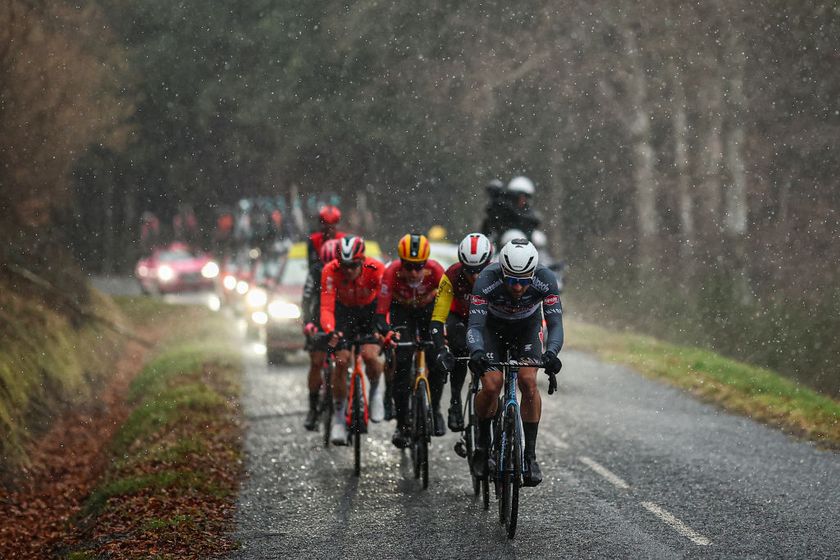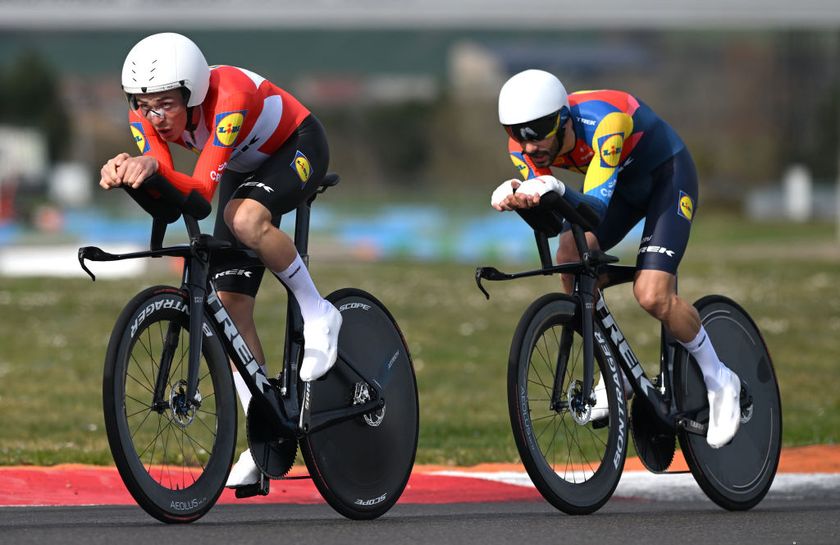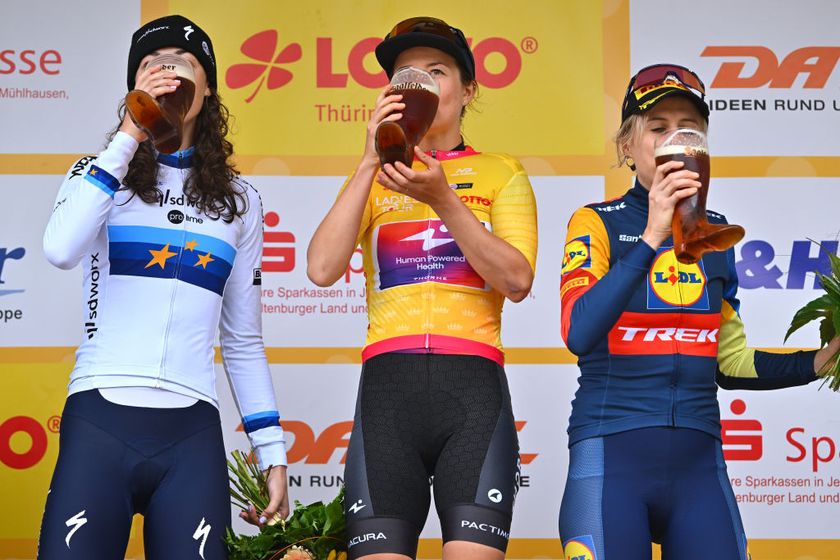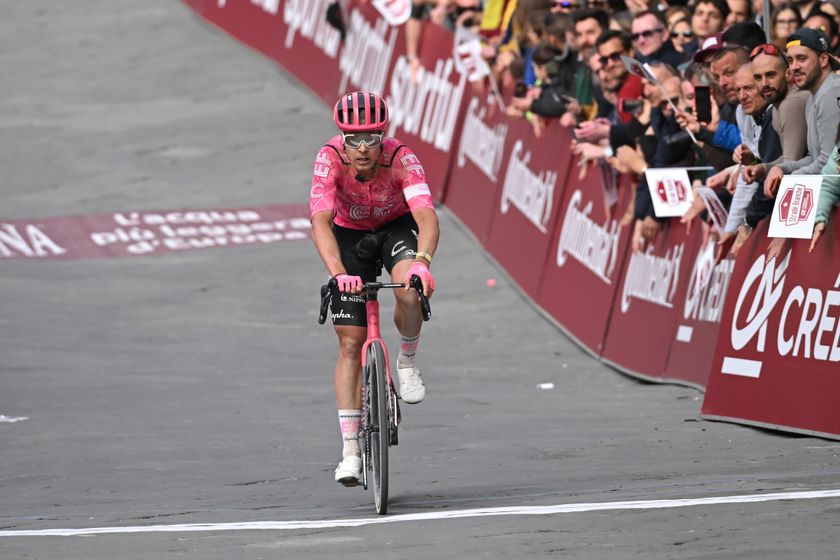UCI to keep top teams out of national events
McQuaid confirms intent to clamp-down on rule 2.1.009



The International Cycling Union could move to block the top professional teams from competing in national, non-UCI sanctioned events in 2011.
UCI president Pat McQuaid told Cyclingnews that the Road Commission intends to strictly enforce code 2.1.009, the rule that prohibits ProTour and Professional Continental teams from competing in national level events.
"I can't confirm that yet but the management committee will seriously discuss it this month," McQuaid told Cyclingnews. "I know that the UCI's Road Commission department do wish to clamp down on it because it was being abused."
The rules of the governing body allow only UCI Continental teams registered in the country of a national event to join regional, club, national and mixed teams in national events. However, the rule had not been strictly enforced in the past, in particular in the USA where there are few UCI-sanctioned events and many of the top races are run as national events.
Tour of the Gila sparked UCI attention
The issue came to a head at the Tour of the Gila in April, 2009, when teams Lance Armstrong wanted to compete in the event along with then-Astana teammates Levi Leipheimer and Chris Horner. The UCI moved to prohibit Astana and the BMC Racing from participating until an agreement was reached between USA Cycling and the UCI which allowed both teams to start three riders wearing nondescript clothing.
The code was enforced in the US this year, however, teams RadioShack and Garmin-Transitions were again permitted to start three riders a piece at the Tour of the Gila. Levi Leipheimer competed in the Tour of Utah and went on to win the overall title. BMC Racing was permitted to start a full roster that included George Hincapie at the event based on an advance exemption worked out between USA Cycling and the UCI.
Get The Leadout Newsletter
The latest race content, interviews, features, reviews and expert buying guides, direct to your inbox!
"The ProTour teams and the ProTour riders were jumping into any races they wanted," McQuaid said. "The exception was to be used in exceptional cases and they started doing it in all the national events and whenever they wanted. Allowing them to compete doesn't serve the purpose of developing the sport, neither in America nor around the world."
It has been argued that an exception should be made for countries like the US where there were only four UCI-sanctioned events this year: Tour of California, Tour of the Battenkill, the Philadelphia International Championships and the Univest Grand Prix.
In 2011, there are three additional events that have applied for UCI sanctioning that include Tour of the Gila, Tour of Utah and the new Quiznos Pro Challenge.
The US currently has three ProTour teams in Garmin-Transitions, RadioShack and HTC-Columbia and BMC Racing is the sole Professional Continental team, as of 2010. However, there are four Continental teams that compete mainly in the US which have applied for upgrades: US-based teams UnitedHealthcare p/b Maxxis and Team Type 1 along with Australia's Fly V Australia and Canada's SpiderTech p/b Planet Energy.
It is rumored that the ProTour and Professional Continental riders could be permitted to participate in the abundance of national level criteriums held in the US, a style of racing that is not recognized by the UCI.
McQuaid explained that having the top teams in lower-level events is not fair for the riders on the lower-level teams, and if teams in the US want to compete on their home soil, then more events need to step up and be sanctioned as UCI events.
"We need a hierarchy in the sport where we have a couple of events where the top riders ride, all the way down," McQuaid said. "We can't make exceptions for any country. That is part of the problem. It is up to North America to put on more UCI races."
The lack of UCI races has kept many of the continent's top teams in the third tier because their sponsors expect them to compete in the national events. But with Tour of California looking to step into the ProTour, the division three teams would not be able to race the biggest event in the Western Hemisphere. That has inspired several teams to make the leap to division two.
"[The rule] might have deterred some teams from becoming Pro Continental in the past but right now, as far as I understand there are a number of teams in North America that are making plans and applications to be Pro Continental. If they want to progress then they have to progress within the hierarchy of teams and events."
UnitedHealthcare manager Mike Tamayo agrees, but argued that not allowing ProTour and Professional Continental riders to compete in their own national events could deter Continental teams from progression to the next level because the limited number of UCI events in the US offers teams fewer opportunities to showcase national sponsors.
If you build it, will they come?
"Enforcing the rule [code 2.1.009] effects my team and the other teams that want to become Pro Continental, because it puts more emphasis on key races," Tamayo said. "Normally you would be able to race forty times in the US and increase the chances of better performances. If you reduce the number of times you can compete in front of your sponsor, those remaining races carry more weight."
In addition, it is widely known that the participation of ProTour riders like Lance Armstrong have helped events to thrive by attracting more sponsors and media attention. The Armstrong-factor helped bring in additional funding to events like the Tour of the Gila, which might have otherwise been forced to cancel due to a lack of funding.
"Obviously there was the Lance and Levi factor at the Tour of the Gila last year," Tamayo said. "The truth is that race was about to declare bankruptcy, and when Lance and Levi talked about entering the race money started flowing into the event. Not only did that save the professional men's bike race but it saved the women's, amateurs, masters races too. It saved the race on many levels, it gained it a title sponsor in SRAM and now it is applying for UCI status next year. So tell me, how is having a ProTour rider come to a national level event not successful for US bike racing?"
There is also difficulty for some events to upgrade to UCI status due to the additional fees and the commitment required in bringing teams and riders in to participate. Furthermore, US stage races would be forced to eliminate the traditional criterium stage, which generates the most interest, because they are not recognized by the UCI.
"Criteriums are the marketable event in the USA and those are not recognized by the UCI and cannot be included in a UCI stage race, which takes away the large crowds and the cash flow," Tamayo said. "Not only is a race organizer spending more money to become UCI but you are also losing money because you are not able to sell your biggest ticket item which is the criterium."
Tamayo sited a possible solution would be for the UCI-sanctioned teams to come together and help races that are on the verge of becoming UCI taking that next step.
"We can fight the rules as much as we want or we can just start to try and work with them," Tamayo said. "The best thing that we can do is for some of the teams, like ours, to reach out to a couple of events and help them become UCI. Help them and see if we can help build our own stadium. There are so many races out there that are so close to becoming UCI and we could potentially look at seeing five new UCI races in the USA if we all help out."

Kirsten Frattini is the Deputy Editor of Cyclingnews, overseeing the global racing content plan.
Kirsten has a background in Kinesiology and Health Science. She has been involved in cycling from the community and grassroots level to professional cycling's biggest races, reporting on the WorldTour, Spring Classics, Tours de France, World Championships and Olympic Games.
She began her sports journalism career with Cyclingnews as a North American Correspondent in 2006. In 2018, Kirsten became Women's Editor – overseeing the content strategy, race coverage and growth of women's professional cycling – before becoming Deputy Editor in 2023.
